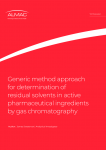Millions wasted on hypertension drugs
treatments for high blood pressure says research published this
week in BMC Health Services Research.
Millions of dollars are being spent unnecessarily each year on treatments for high blood pressure says research published this week in BMC Health Services Research. Vast amounts could be saved if doctors prescribed thiazides, the recommended and cheapest drugs, rather than expensive alternatives.
Atle Fretheim and his colleagues from the Norwegian Directorate for Health and Social Affairs estimated the potential annual savings for six countries if thiazides were prescribed whenever there was no reason to use an alternative. The savings could be huge: Canada - $13.8m, France - $37.4m, Germany - $72.2m, Norway - $10.7m, UK - $119.7m and US - $433.6m.
"Our calculations are based on conservative estimates. The potential for saving is likely to be considerably higher, and may be over $1billion per year in the US," write the researchers.
To produce these estimates, the researchers used sales, prescription and survey data to estimate the number of people in each country that were being treated for high blood pressure, and the proportion of those that were taking thiazides. The proportion varied between countries from 12 to 40 per cent.
Previously published research suggests that thiazides could be used effectively in at least 45 per cent of all cases. Armed with this information, the researchers worked out the potential annual cost savings to health services. They calculated the costs of increasing thiazide usage to its limit, and the resulting cost reductions of other treatments, assuming these reductions would be distributed evenly across those treatments.
All clinical guidelines recommend thiazides as a first choice drug for treating uncomplicated high blood pressure. This is because no drug to treat high blood pressure has been identified as being clearly superior to the others, and the evidence that thiazides reduce the risk of stroke and heart disease is strong.
Thiazides are also among the best tolerated drugs, and are by far the cheapest option. Yet they are prescribed less often than they could be, perhaps due to the extensive promotion of other medication.
Dr Fretheim knows that even armed with this new knowledge ensuring that doctors prescribe thiazides whenever possible will not be straightforward. "Changing prescribing practices is not easy. It requires effective strategies and resources to support the changes. In this case, such an investment could potentially save money, and at the same time improve quality."















